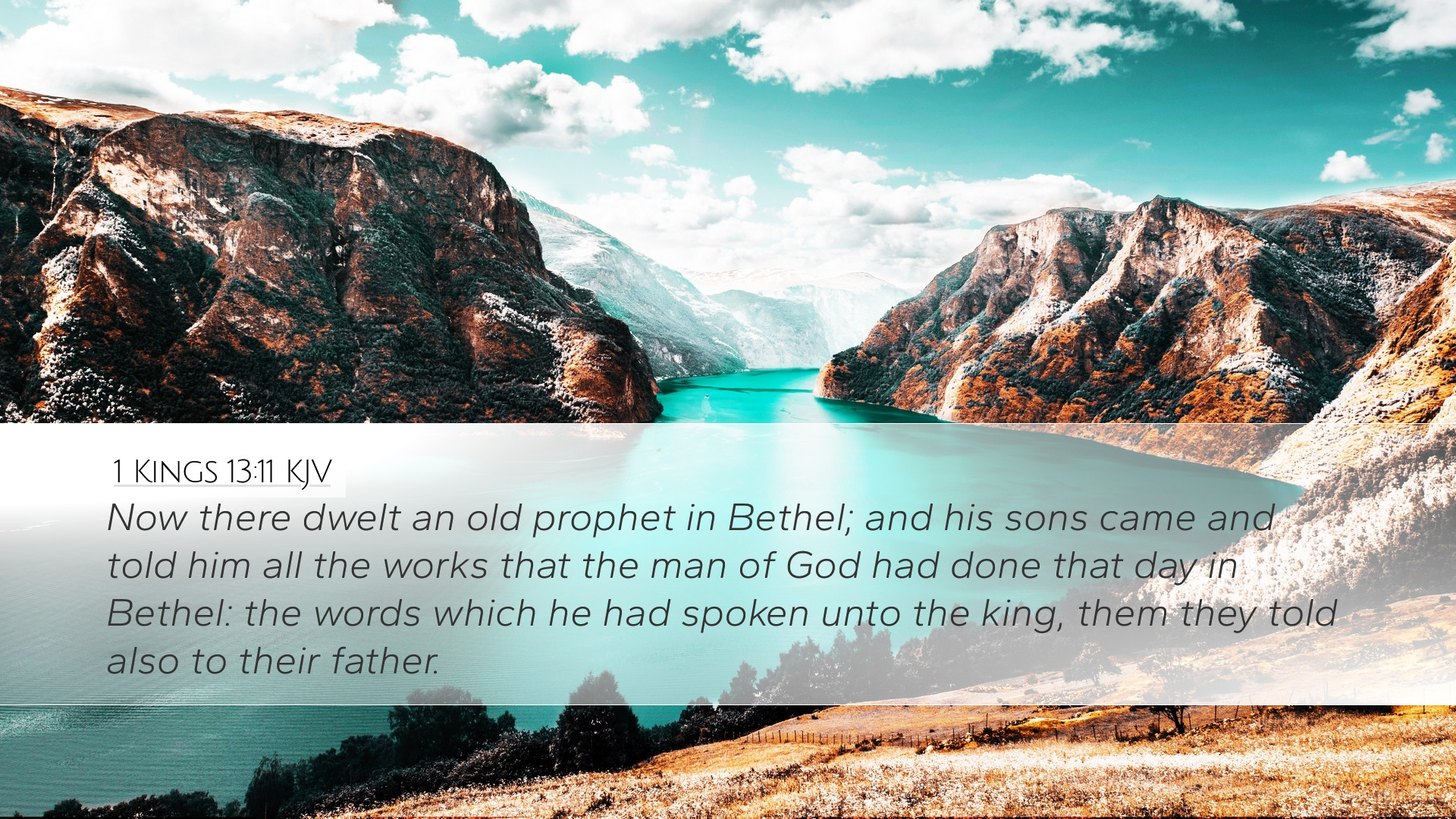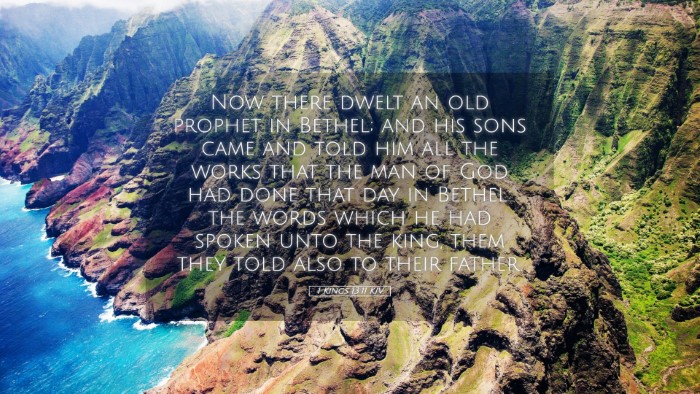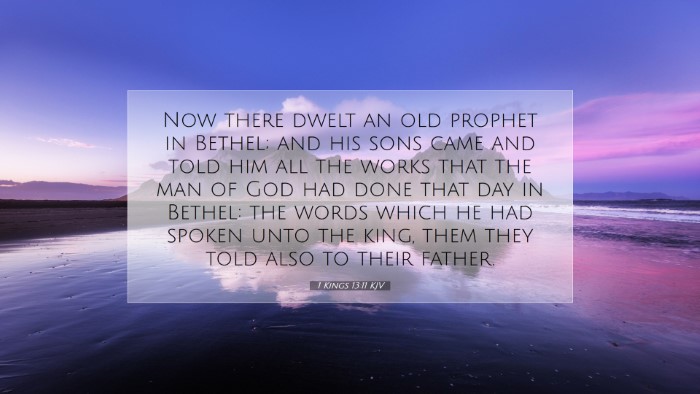Commentary on 1 Kings 13:11
Verse: "Now there dwelt an old prophet in Bethel; and his sons came and told him all the works that the man of God had done that day in Bethel: the words which he had spoken unto the king, them they told also to their father."
Overview
This verse introduces a significant character in the narrative of 1 Kings 13: the old prophet who resides in Bethel. His role becomes pivotal in the unfolding drama concerning the man of God from Judah. The account speaks volumes about the prophetic and theological climate of ancient Israel, particularly concerning the authority of God's Word and the responsibilities of His messengers.
Exegesis and Context
The context of 1 Kings 13 is essential for understanding the gravity of this verse. A prophet from Judah is sent to prophesy against the altar at Bethel, indicating a direct confrontation with the established worship practices of Israel under King Jeroboam. The old prophet's dwelling in Bethel signifies his connection to the problematic religious environment that Jeroboam established. The inclusion of the old prophet here highlights the importance of tradition and the passing of prophetic authority.
Insights from Public Domain Commentaries
Matthew Henry's Commentary
Matthew Henry emphasizes the nature of prophetic authority and the implications of this encounter. He observes that the old prophet represents an established lineage of prophets who may have been sidelined by the current religious practices. Henry brings to light the warning embedded in this narrative—true prophets must execute God’s commands without deviation. The portrayal of the sons who relay the man of God’s actions indicates the importance of communication in prophetic missions—what is spoken must be observed and articulated faithfully.
Albert Barnes' Notes on the Bible
Albert Barnes provides a nuanced understanding of the old prophet’s motives. He suggests that the prophet’s curiosity about the man of God’s message reflects a longing for revival amidst stagnant religious practices. Barnes notes the significance of the sons’ report as they relay not only the actions but also the words of the man of God, underscoring the transformative potential of prophetic speech. Furthermore, Barnes discusses the implications of the prophet’s reaction—whether it indicates approval, jealousy, or a desire to reclaim prophetic authority is debated.
Adam Clarke's Commentary
Adam Clarke draws attention to the socio-political ramifications of the event. He views the old prophet as a figure caught between the divine and the earthly paradigms of power. Clarke delves into the implications of the old prophet’s recent activities and his thirst for knowledge about the miraculous signs that accompanied the young prophet. This interaction can be seen as a commentary on the struggle of God's true messengers within a corrupt system, where the mission of God’s emissaries often faces opposition and scrutiny.
Thematic Reflections
This verse raises several critical themes relevant to ministry and theological reflection:
- The Nature of Prophetic Ministry: The relationship between the prophets indicates a possible disconnect between the older and newer generations of prophets. Reflecting on how often established leaders respond to new movements of God can be illuminating for contemporary church dynamics.
- The Importance of Accurate Reporting: The sons of the old prophet are witnesses to the extraordinary event. Their role as narrators emphasizes the necessity of fidelity in communicating God’s word.
- Confrontation with Established Practices: The arrival of the man of God signifies a clash with idol worship, emphasizing the importance of challenging established norms when they deviate from divine revelation.
Application for Today
For pastors, students, and theologians, 1 Kings 13:11 serves as a critical reminder of the intricate dynamics within the prophetic ministry:
- Leadership Dynamics: Understanding how to convey God’s truth in a context where both younger and older leaders exist can inform discussions on leadership and mentorship within the church.
- The Power of Testimony: The role of the sons emphasizes the impact of sharing testimonies and the responsibility of every believer to share the works of God in their lives.
- Importance of Discernment: The narrative warns against the allure of tradition over divine revelation, urging leaders to remain sensitive to the Holy Spirit’s leading, regardless of established norms.
Conclusion
1 Kings 13:11 serves as a pivotal verse that opens a window into the prophetic ministry in Israel. The insights drawn from public domain commentaries by Matthew Henry, Albert Barnes, and Adam Clarke illuminate the text’s richness, providing profound implications for contemporary readers. In a world where prophetic voices may often clash with prevailing cultural currents, this passage encourages vigilance in remaining steadfast to God's truth, embracing the new while honoring the old, and communicating faithfully what God has proclaimed.


